by Jim Shults
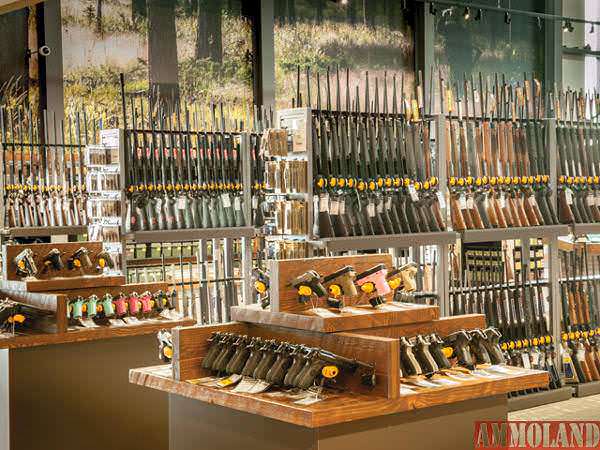
![]() U.S.A. –-(Ammoland.com)- When reading through a recent copy of Forbes, I keyed in on an article about major brick and mortar retailers having problems (to say the least) with losses to internet sales. You see, my wife and I had just been in a Dillard’s store in Scottsdale’s Fashion Mall. This huge (I would guess 200,000 square feet per floor), multi-level store was packed with costly inventory, cost a lot to operate – and had just eight customers in it (including us). When I questioned employees, they said the Internet was killing the store.
U.S.A. –-(Ammoland.com)- When reading through a recent copy of Forbes, I keyed in on an article about major brick and mortar retailers having problems (to say the least) with losses to internet sales. You see, my wife and I had just been in a Dillard’s store in Scottsdale’s Fashion Mall. This huge (I would guess 200,000 square feet per floor), multi-level store was packed with costly inventory, cost a lot to operate – and had just eight customers in it (including us). When I questioned employees, they said the Internet was killing the store.
I go into our local Cabela’s during the week and wonder how they do it – or if they really are. In Phoenix, Dick’s Sporting Goods big box store was so empty of customers we rattled around like BBs in a box car. This is not good!
Put yourself in a retailer’s place. Typically, you may have several hundred to several thousand different SKUs (stock keeping units) in your store. This means you have a boatload of money tied up in inventory – and that leftover store inventory also gets taxed (inventory tax) at the end of the year in most states[10] (something few folks know).
Couple this world of retail competition with the costs of payroll, mortgage or rent, city and county property taxes, property insurance for fire, theft, and liability – and then add water, electric, heat, cooling, displays, upkeep, security, marketing/advertising, and theft (shrinkage), and you can see how a retailer’s cost problems grow exponentially.
To keep it simple, let’s look at payroll. For this example, we will set employee base pay at $15 per hour (it can be more or less but let’s just go with this number–please do not pick on the author). Now add in the employer’s silent share (payroll tax made up of FICA and Medicare), unemployment tax, workman’s compensation, and other costs and fees in any particular state regarding an employee, and suddenly this “$15 per hour” employee becomes a per-hour cost to the employer of about $21 per employee – and that doesn’t even count health insurance.
So what does just this extra “puny” $6 ($21 minus $15= $6 for those in Loma Linda) an hour represent in cost to the employer for a full-time employee – more than $12,000 annually! This figure also does not include any employer profit sharing, IRAs or simple 401Ks (if provided in today’s high-cost world).
Now to cover that single “silent cost” of just $6 an hour or $12,000+ a retailer has to sell somewhere between $59,000 and $90,000 in guns at full MSRP to make up that one employee’s “extra” cost from the profit. If it is a full line store, they can make it up a bit easier with lots of optics, cutlery, clothes and other ancillary sales that have a slightly higher margin – except that those are also the very items and sales that the Internet is syphoning off.
Gun profit margins are thin, yet guns are important to have in a full line store, and vital in a gun shop. On top of that, the cost of maintaining a gun inventory is not cheap! All these costs are one reason why so many brick and mortar retailers (of all types) are struggling to survive against internet sales.
Something to think about in just the gun industry. If we keep losing major retailers such as Gander Mountain, Sports Authority, and the failed parts and pieces of Sportsman’s Warehouse (from a few years ago), the gun industry and its consumers are in trouble. Additionally, if you think the mom and pop gun shops across the country are making it, you are wrong; we just do not hear of them going under the way we do when big operations go down, and the generally older folks who own them are retiring and shutting down.

If these outdoor/hunting retailers continue to shrink or go out of business, how will the firearm industry survive? And, if big box gun retailers and full line independents keep going out of business, say goodbye to all the other stuff they carry, from shoes to camping gear, and boats to bullets.
Generally, (remember, we said generally) one cannot legally buy new firearms (and in many states even used guns) through anything other than a FFL licensee. So a legal transfer means an FFL licensee must usually process the sale. If we continue to shut down or kill off the firearms retailers, there is certainly no future for new firearm sales because Internet sales without FFLs being involved are, contrary to politically inspired left-wing media lies, illegal.
Now, you can say, “Well, private people can get an FFL” – and that was true years ago (for example, I had a special one as a military and gun magazine editor-in-chief in the 1980s and 1990s). But things are much tighter today, and more regulations by a hostile liberal government and/or ATF can literally tighten the legal FFL outlet stream to a tiny trickle almost overnight!

Currently, there are about 145,000 FFLs in the U.S. – but in the mid-1990s there were 450,000! A regulation change here or there can take that remaining 145,000 down big time. Also, of that 145,000, many are institutionally owned by manufacturers, retailers, importer/exporters, et al, and they often have several FFLs for various legal and business reasons. Cabela’s has recently taken to selling guns online but, to finalize the sale, you still have to go to one of their stores to get the gun and fill out the federal and (usually) state clearance. Is this then the future of “gun sales?”
Firearms sales actually support a large part of our economy, to include many state game and fish operations. As Internet sales continue to rob retailers of their non-firearm, higher profit margin items, you may begin to see an interesting problem for the entire firearms manufacturing, hunting and outdoor industry develop.
The firearms industry (guns) is the base of many other industries and businesses dependent on hunting and shooting in general. Think of all the items dependent on gun ownership and the related shooting sports, to include even big ticket items like SUVs, RVs, etc. and the towns, and even states, that have hunting as part of their income base.
Retail locations are simply becoming showrooms for Internet sales. As a guy with a long history in retail sporting goods years ago, it all makes me seriously sad, and it bodes badly for the health of our currently free society when it comes to the Second Amendment and what that amendment really means for citizen freedom.
Go to most any shopping center nowadays and you will see closed stores of all types, courtesy of Amazon and other Internet warehouse outlets. Perhaps the Internet scenario is something the firearms industry and associations should begin to address, because it is coming at us at light speed – and when the retailers are gone, or retail gun access is gone or incredibly reduced, then where will you legally purchase a firearm and, if you can, what will be the cost and trouble to do so?

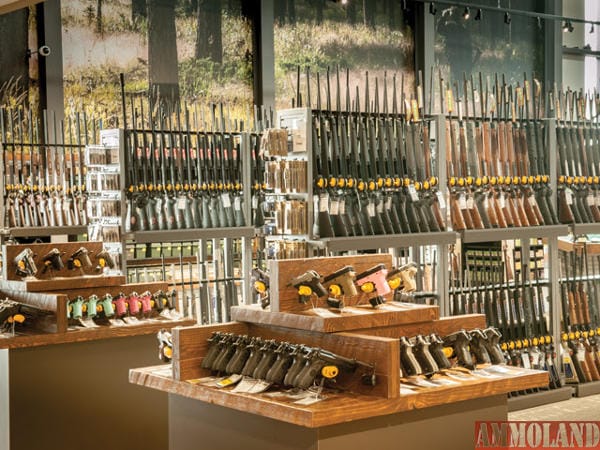
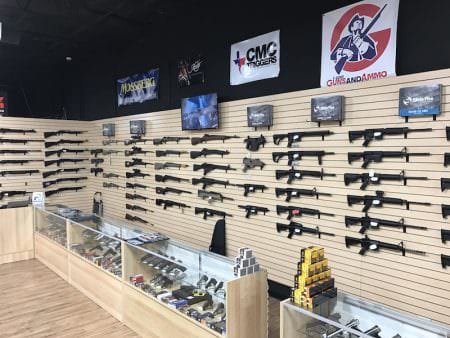

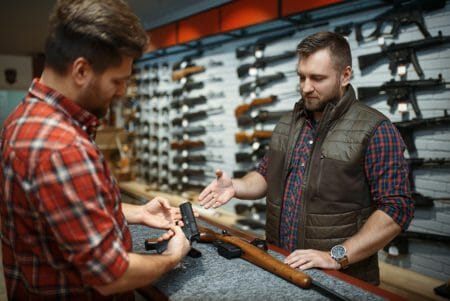
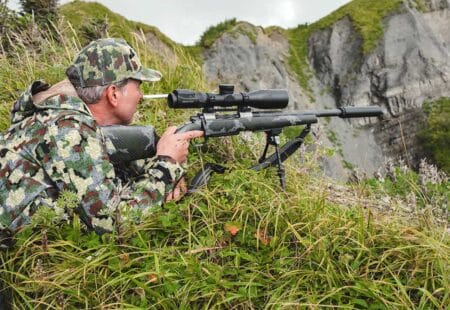
I have a close friend who has a home business FFL and SOT 3. He is not going to be the next Warren Buffet, but does well for himself. Here is how he doe it. Since not everyone in the U.S. owns 2-3 firearms, he believes there is a market for actually talking, face-to-face, with people about their needs. Why they want a gun, what are they planning on using it for, etc. People see the value in someone taking personal care of them. They often will buy from him because of that. He is also up front about pricing… Read more »
I once owned a small gun store, fully licensed and permitted and doing quite well. The city that it resided in decided that mine and a few other types were undesirable, in their words high risk to residents of the community. As a result my city business license jumped from $25.00 a year to $1,500.00, the following year to $2,500.00 and the year after that $5,000.00. The same year business license jumped the city also required high risk business, their words not mine, to carry liability insurance or be bonded for a minimum of 3 million the first year, 5M… Read more »
Don’t forget to add in the costs of an FFL and the tremendous amount of associated costs in dealing with all the paperwork. You would be shocked if you truly knew the amount of over-regulation and the toll it takes, financial, physical& emotional, on a small business. The BATFE as a whole is a parasitic menace upon a licensee and your freedoms.
Higher prices IS what killed Gander Mountain, Dicks and Cabelas is in the same boat, gotta pay for the fancy buildings, displays and uniforms somehow. The money needed to pay for the EYECANDY store is placed on the merchandise that we are to buy there. The Gander Mountain in Greensburg Pa, once closed and reopened is going to be Campers World, a place dedicated to camping supplies only, no guns or ammo…. With that being said, it won’t last long, can you say BORING ? Kmart stopped selling guns/ammo, it CLOSED to. Stores and shops that cave to the liberal/Dem… Read more »
There is a lot of falsehoods in this story. Internet sales are NOT killing these stores. You still have to send all internet sales to a FFL holder and do the 4473. They charge between 10 and 35 bucks for EACH gun just to do that. The real reason is charging full MSRP and over that price when you can go to a local shop and get the exact same thing for 3/4 and a lot of times 1/2 the price. That is what kill Gougermountian. Basspro and Cabela’s are even worst than Gander was. Gander atleast had decent prices… Read more »
Mr. Duncan Johnson I see your point and understand your concern; but big stores like Gander Mountain are way over priced and are packed of common items. If you are looking for a magazine for your 9×18 Makarov or looking for 7.5×54 ammo you are not going to find it there. If you are looking to buy a hand gun or rifle you are paying huge prices same with ammunition. So the public will gravitate to where they can find better value on the items they are looking for. I own a gun business Operation Steel Rain and I am… Read more »
The first gun i bought was at an ACE hardware store back in the 70’s in the 80’s Dicks use to sell reloading equiptment , powder, primers and bullets but as NY goes it get more and more anti gun, the local walmart wont sell pistol ammo with out a permit. Even though there are long gun that use pistol ammo they don’t care. So I use the small gun stores and the internet. in my area there must be at least 15 FFL holder that do transfers . The local gun store will do a search for a person… Read more »
I disagree about the lack of retail being a bad thing for the Second Amendment. By the author’s own admission, the dramatic drop in the number of FFL’s in the U.S. happened way before the Internet upset the retail apple cart.
Retail may be dying (and there are a lot of reasons why, such as failing to develop a fan base for their stores), but gun ownership is not.
Retail is dying. Amazon, etc. and the internet is killing it. Gun shops will exist simply because of the laws controlling sales and most gun owners like to hold, touch, try an unknown firearm prior to purchase. That said, if you want a particular firearm, and have shot your friends gun, or even just a friendly strangers gun while at the range, is there reason to handle that model prior to purchase? Or does an internet sale now make much more sense? I always check with my local shop regarding availability and price, if they can match or come close,… Read more »
for Vanns40: I do not know about Bud’s business structure specifically, but I do know that creating an umbrella company may have many advantages. Consumers see Bud’s sites and stores and they appear to be the same, but they may actually function as separate business entities. It is a very common practice.